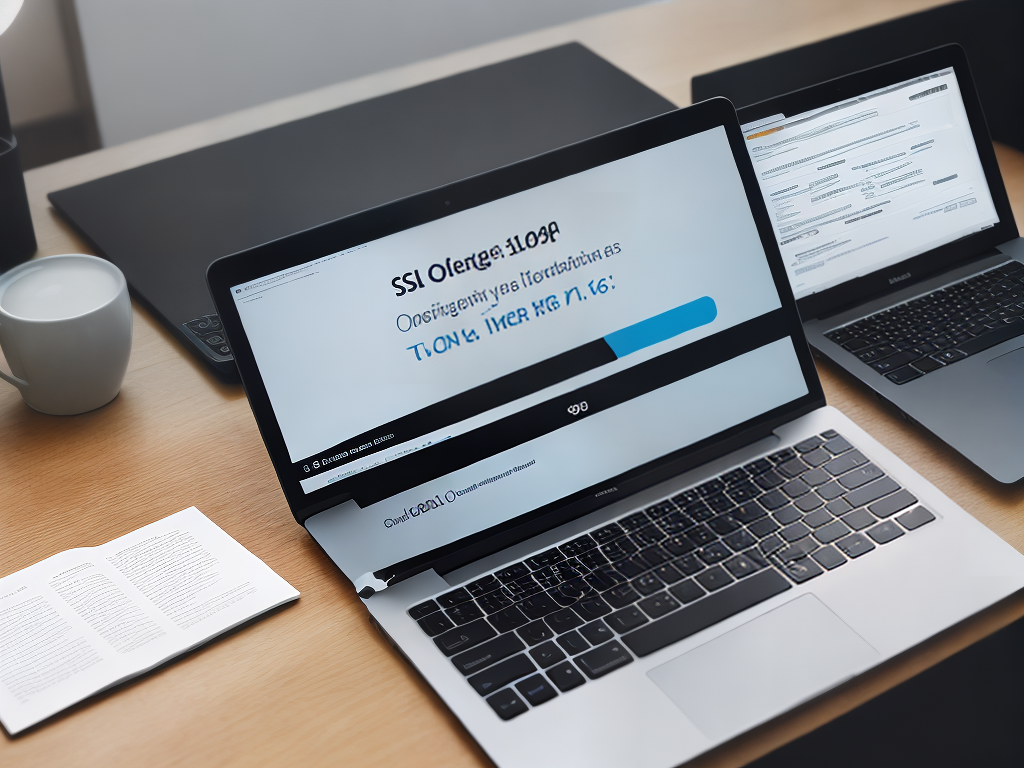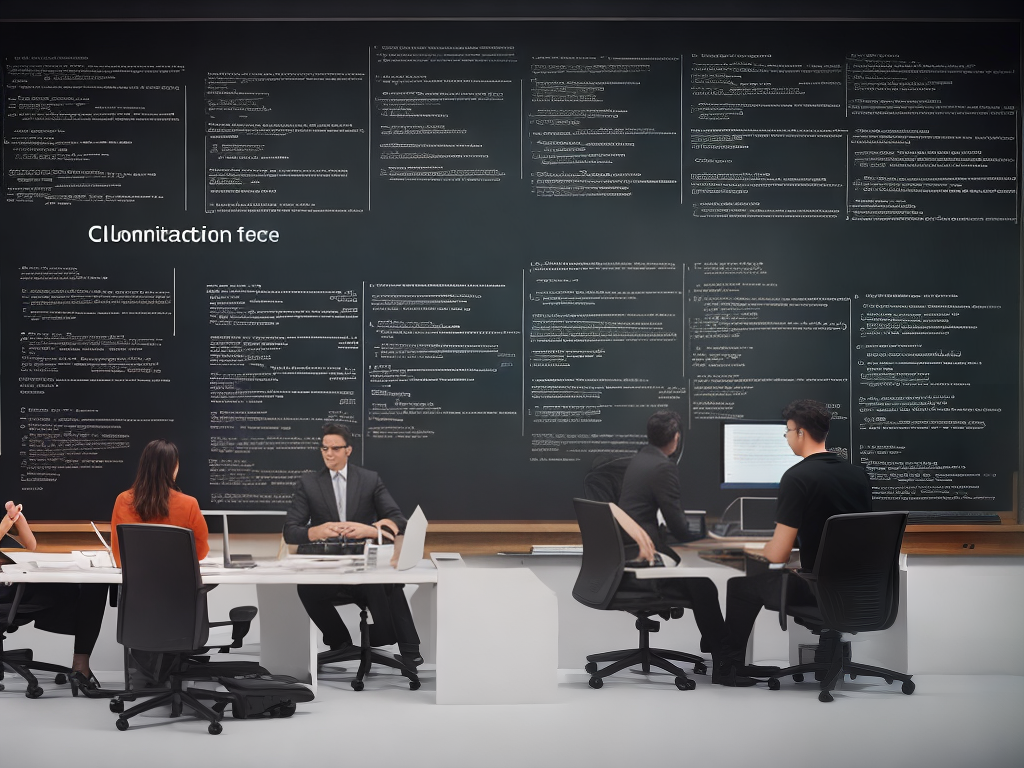When it comes to running a successful website, security is essential. Ensuring your site’s security can not only protect you from malicious attacks and data breaches, but also improve your SEO ranking.
In this article, I’ll be discussing the importance of site security for SEO and how you can use it to boost your visibility in search results pages.
It may seem like an intimidating task at first, but trust me – with a few simple steps, anyone can make sure their website is secure and reap the benefits of improved SEO rankings.
With that goal in mind, let’s dive into why site security matters so much when it comes to SEO!
What Is Seo?
It’s no secret: having a good website is critical for success in our digital age. But what exactly does that entail?
SEO, or Search Engine Optimization, is the process of optimizing websites to make them more visible on search engine results pages (SERPs). It’s like painting your house with a bright color so it can be found from miles away – if you want people to come knocking on your door, you have to make sure they know where you live!
SEO strategies involve writing great content and making sure sites are easy to use and navigate. This includes tasks such as creating an effective keyword strategy and maintaining a clean design structure. These elements are all important when it comes to getting noticed by search engines.
But there’s one factor often overlooked: site security. Having secure protocols in place helps ensure the safety of users who visit your site and protects any sensitive data associated with it. In addition, Google rewards websites that prioritize security by giving them higher rankings on SERPs.
So while having quality content is key, keeping your site safe should also be top priority if you want to get ahead in SEO efforts. The bottom line is this: without taking steps to protect yourself online, not only will you miss out on potential customers but also risk being penalized by search engines.
To reap the benefits of SEO, don’t forget about the importance of safeguarding your business against cyber threats – after all, prevention is always better than cure! With that in mind, let’s turn our attention now to why site security matters when it comes to achieving good SEO results.
Why Is Site Security Important For Seo?
I can’t emphasize enough how important site security is for SEO. If you want to make sure your website appears on the first page of search engine results, then it’s essential that you secure your website so as to protect its integrity and reputation.
Search engines are constantly trying to weed out malicious websites that could be used to spread malware or viruses, so if they detect any signs of this activity on a website, they will immediately blacklist it from appearing in their search results.
This means that even if all the other aspects of your website (including content) are optimized correctly, the chances of appearing in those coveted top rankings are slim unless your website is properly secured against potential threats.
Having an SSL certificate installed on a domain also plays an important role when it comes to securing a website. An SSL certificate enables secure encryption between a web server and user’s browser which ensures sensitive information such as credit card details won’t be intercepted by hackers or cybercriminals.
Additionally, Google has announced that it gives preference to sites with valid SSL certificates over ones without them – so having one installed can help boost your SERP rankings too!
In order for search engines to trust your website and rank it highly, ensuring its overall security is paramount. So taking steps towards making sure no malicious activity takes place on your domain should always be at the top of your list when optimizing for SEO purposes.
With that being said, let’s take a look at what measures we can take to ensure our websites stay safe and secure online.
How To Secure Your Website?
Now that we’ve discussed why site security is so important for SEO, let’s dive into how you can actually make sure your website is secure. It doesn’t take a lot of time or money to get started; in fact, there are a few basic steps you can follow right away to start protecting yourself from potential malicious actors:
-
Make sure all software used on the website (including plugins) are up-to-date with their newest version and patch releases.
-
Use strong passwords and enable two-factor authentication when possible.
-
Employ HTTPS encryption measures such as SSL certificates and encryption algorithms like TLS and SHA2.
-
Implement firewalls, malware scanning tools, spam filters, and other types of web application protection services to keep attackers at bay.
Taking these precautions will help ensure that your website remains safe and secure while also improving its overall search engine visibility.
Not only does this show Google that you care about user experience—it also indicates that you value the trustworthiness of your online presence. And with more people relying on the internet for information than ever before, creating a secure environment for them is critical if you want to stay competitive.
By taking proactive steps to protect your website from malicious attacks, not only do you create peace of mind for yourself but also allow visitors to feel comfortable navigating it without fear of being compromised by cybercriminals.
With better security comes improved rankings in organic search results since Google rewards sites that prioritize safety over everything else!
Now let’s discuss the benefits of site security for SEO…
The Benefits Of Site Security
Protecting a website is like having an invisible wall around it; nothing can get in that you don’t want. It’s important for any business to take the necessary steps to ensure their site is secure, not just for SEO purposes but also for customer satisfaction and data protection as well.
One of the key benefits of making sure your site is properly secured from cyber attacks or malicious activities is improved rankings on search engine results pages (SERPs). Search engines prioritize sites with higher levels of security over those without, leading to increased visibility and greater opportunities for organic traffic. This means more potential customers will have access to your website and services.
Furthermore, by protecting your website from outside threats you are providing peace of mind to both yourself and your customers. People need to feel confident that their personal information is safe when they visit a website and if there’s no guarantee then the chances of them coming back again are slim.
With effective security measures in place, everyone involved has faith that all data exchanges will be fully encrypted and protected from prying eyes.
A lack of proper site security could lead to serious consequences such as fraud or identity theft so it pays off in the long run to make sure everything is up-to-date and secure as possible. Not only does this protect users but it ensures businesses maintain trustworthiness within their industry and avoids costly reputational damage down the line.
Securing websites doesn’t have to be expensive or time consuming either – SSL certificates and HTTPS are inexpensive solutions that provide reliable encryption protocols which keep user data secure online while still being friendly on the budget.
Ssl Certificates And Https
When it comes to site security, there is no better way to protect your website than with an SSL certificate and HTTPS. This combination can help you achieve the highest level of website protection for your customers and users. And when it comes to search engine optimization (SEO), having a secure connection is essential.
SSL certificates are digital documents that establish trust between two parties online; in this case, between your website and its visitors. Once installed on your server, they create an encrypted connection between the browser and the web server so any information exchanged is kept safe from prying eyes. By securing these connections, you’re helping ensure that only legitimate traffic reaches your site – which helps boost SEO rankings by ensuring user safety.
Another great advantage of using SSL certificates has to do with Google’s ranking algorithm. In 2014, Google announced that sites using HTTPS would be given a slight boost in their organic search results as part of their efforts to make the internet safer and more secure overall. Although this increase may not seem like much at first glance, over time it can add up significantly – especially if other sites in your niche aren’t taking steps towards becoming more secure with SSL certificates and HTTPS protocols.
In addition to boosting SEO ranking signals, using an SSL certificate also gives customers peace of mind knowing their personal data will remain confidential while browsing or making purchases on your site. Allowing customers to shop without worrying about their private information being exposed makes them feel comfortable giving out payment details or signing up for services – meaning you’re likely to see higher conversions rates across all channels too!
With these key benefits in mind, let’s take a look into how you can best implement an SSL certificate on your own website.
How To Implement Ssl Certificates
Securing your website with SSL certificates is an integral part of ensuring that your site remains safe from malicious attacks. To get the ball rolling, you’ll need to purchase and install a valid certificate from a trusted authority.
With so many options on the market, it can be hard to know where to start – but rest assured, there’s no shortage of providers willing to help out. Once you’ve settled on a provider, you’ll want to familiarize yourself with their terms and conditions before signing up. Make sure everything looks good in black and white; if something doesn’t feel quite right, don’t hesitate to shop around for another option. After all, better safe than sorry!
The installation process itself will vary depending on the particular platform or hosting environment you’re using. Fortunately most modern web services come equipped with built-in tools that make setting up SSL certificates easy as pie – just follow the instructions provided by your host or service provider and you should have everything running smoothly within minutes.
With the basics taken care of, all that’s left is making sure your visitors are aware that they’re accessing a secure site. This means adding visible elements like security badges and HTTPS protocol indicators throughout your website – after all, what use is having the latest encryption technology if nobody knows about it?
Transitioning into this next section we will explore how these measures directly impact SEO rankings for websites.
The Impact Of Site Security On Seo Rankings
SSL certificates are an important factor for website security. They help prevent hackers from intercepting traffic, stealing user data and using it to their advantage. But just having a secure connection isn’t enough – the impact of site security on SEO rankings must also be taken into account.
Google values websites that prioritize users’ safety and privacy as they browse the web. As such, they reward sites with higher rankings in search results if they have an SSL certificate installed. Not only does this boost visibility, but it also shows potential visitors you take your website seriously by making sure it is secure and trustworthy.
Another way to ensure your website is safe from malicious attacks is by using a Web Application Firewall (WAF). A WAF helps protect against unauthorized access, malware injections and other online threats which can damage both your reputation and ranking on Google. It scans incoming data requests before sending them off to the server so any malicious code or attempts at hijacking won’t make it through. This not only improves overall security but also enhances performance since less resources are used when dealing with malicious content.
By investing in proper site security measures such as SSL certificates and a WAF, you can provide peace of mind for yourself and confidence for your customers knowing that all sensitive information shared between both parties remains private and safe from prying eyes – thus improving SEO rankings too!
Taking these steps will set you up for success now and well into the future. Now let’s look at how we can use a Web Application Firewall to further strengthen our website’s defences against cyber attacks.
Using A Web Application Firewall
It’s essential to invest in site security for SEO reasons. You don’t want your website going down because of a malicious attack, as it can damage your reputation and hurt your rankings. One way to protect yourself is by using a web application firewall (WAF).
A WAF will provide an extra layer of protection against cyber threats that could harm your website or its content. A WAF works by analyzing incoming traffic and blocking suspicious activity before it reaches the server. It also provides real-time monitoring so you can identify any potential threats quickly.
The WAF helps prevent data breaches and other malicious attacks from occurring on the server level, which makes it one of the most reliable forms of online protection available today. Another benefit of having a WAF is that it can help reduce false positives and improve response times when responding to legitimate requests.
As well, some WAFs come with advanced features like custom rulesets, allowing you to tailor the firewall to meet specific needs or requirements for certain types of websites or applications. And finally, many web hosting providers offer additional layers of protection through their own managed services that integrate seamlessly with the WAF.
These are just some of the advantages offered by using a web application firewall—but now comes the important part: how to stop malicious attacks? By taking proactive measures such as investing in a quality WAF solution and implementing best practices for secure coding and proper configuration management, you’ll be able to keep your site safe from intruders while helping ensure its long-term success in search engine results pages.
Moving forward, let’s take a look at how we can do this effectively…
How To Stop Malicious Attacks
It’s no secret that site security is an important factor for SEO. Not only can it hurt your rankings, but if you’re hacked or suffer from a data breach, it could potentially destroy your online presence and reputation in the eyes of customers and search engines alike.
That’s why it’s so important to take all necessary steps to protect yourself against malicious attacks.
The best way to prevent these kinds of attacks is by using secure protocols such as TLS/SSL encryption and implementing two-factor authentication (2FA). These additional layers will make sure that any sensitive user information stored on your website remains safe and inaccessible by outside sources.
It’s also beneficial to use firewalls, antivirus software, web application protection systems, etc., which act as another layer of defense between hackers and your valuable data.
Of course, even with all this added protection, there are still risks involved when running a website. That’s why monitoring should be done regularly – checking for suspicious activity like increased traffic spikes or unusual login attempts – to ensure everything is functioning properly at all times.
Staying informed about the latest security threats through research and updates within the industry can help identify potential vulnerabilities quickly before they become serious issues.
Having a plan in place for dealing with cyberattacks goes a long way towards safeguarding both your business operations and customer trust. With vigilance comes peace of mind knowing that you are doing everything possible to keep users’ information private while maintaining strong SEO performance. And that leads us into our next topic: how to monitor site security effectively…
How To Monitor Site Security
It’s like trying to protect a fortress from marauding invaders. You have spent time and energy building your website, and it is essential that you take steps to secure it against malicious attacks. Monitoring the security of your site regularly can help ensure this protection.
Think of yourself as an active sentry on guard duty; diligently checking for signs of any suspicious activity or intrusions into your domain. Keeping track of all user accesses logs, search engine crawlers and monitoring for possible vulnerabilities are some important steps in ensuring that your website remains safe from cyber-attacks.
You also need to be aware about what kind of code is running at the backend such as plugins, scripts etc., which may contain malicious software or malware. Regularly updating these programs will minimize the impact from potential threats.
Similarly, using strong passwords with two-factor authentication will add another layer of defense against hackers who might try to gain unauthorized access through brute force attempts and phishing scams.
The best way to avoid being caught off guard by malicious attack is by staying informed and up-to-date with the latest developments in web security techniques and tools. Knowing how attackers operate can give you insights into strategies for protecting yourself proactively instead of reacting after damage has been done.
Moving forward, we’ll explore best practices for securing your website so that you can rest easy knowing that your online presence is well protected from harm’s way.
Best Practices For Securing Your Website
When it comes to website security, best practices are essential. Taking the time and effort to properly secure your site is not only important for SEO rankings, but also for protecting yourself and your users online. It’s worth investing a little extra money in this area in order to ensure that you’re as safe as possible when dealing with sensitive information or data.
First things first: use an up-to-date web server software to protect against hackers and malicious attacks. Make sure all of your plugins, themes, and content management systems are kept updated on a regular basis; even minor vulnerabilities can be exploited if left unchecked. Additionally, strong passwords should always be used and regularly changed – two-factor authentication adds another layer of security here as well.
You’ll also want to make sure that any third party scripts running on your site have been reviewed by experts who understand the risks involved with them. These scripts can open up potential backdoors into your system if they’re not adequately checked out before being implemented.
Finally, consider using encryption protocols like HTTPS/SSL (Secure Sockets Layer) to further secure the transmission of confidential data between parties over the internet – this will provide peace of mind for both you and your customers alike.
With these steps taken care of, it’s now time to examine how content plays a role in website security. Content isn’t just about words on a page — it’s also about images, video files, links, and other digital assets that need defending from cyberattacks…
The Role Of Content In Website Security
When it comes to website security and SEO, content plays a vital role. After all, the content on your website is what drives users to visit you in the first place. In order for your site to be secure, the content must be comprehensive, relevant, and up-to-date.
Here are some key ways that content can help keep your website safe:
-
Regular Updates – Keeping your content fresh ensures that visitors will stay engaged with your website as well as keeping hackers out of any loopholes they might find.
-
Quality Content – Good quality content gives search engines like Google more information about who you are and what services you offer so they can rank you better in their searches. This also helps protect customers from malicious actors looking to exploit poorly written or outdated websites.
-
Security Checks – It’s important to regularly check if there have been any changes made to the code or files on your server which could potentially compromise its security. Making sure these checks occur frequently keeps potential vulnerabilities at bay while ensuring smooth operation of your website too.
These strategies should be implemented into every website’s security plan in order to maximize safety without sacrificing performance or user experience. With proper implementation of these practices, businesses can not only benefit from increased visibility but also gain peace of mind knowing their data is protected from outside threats.
As we move forward into our discussion about the future of website security and SEO, these tactics remain essential components of an effective online presence.
The Future Of Website Security And Seo
I never thought I’d see the day when website security and SEO would go hand-in-hand. It’s almost like a perfect match: two powerful forces coming together to create something even more incredible. And yet, here we are…
As technology continues to advance, so too does our understanding of what makes a website secure and how that relates to its organic search engine performance. Search engines are getting wise to tactics used by malicious actors in order to manipulate rankings, which is why they’re increasingly taking into account whether or not a site is properly secured when evaluating it for ranking purposes. We’ve already seen this with Google introducing their HTTPS as a ranking signal back in 2014.
But this isn’t just about keeping hackers at bay; there’s also an inherent benefit to having your site locked down tight from an SEO perspective.
Secure sites now have zero latency due to faster loading times thanks to better caching techniques and fewer resources needed for web requests. This means you can focus on optimizing your content without worrying about technical issues hindering performance – the kind of stuff that could harm rankings long term if left unchecked.
The future looks bright for those who take website security seriously and invest in making sure their sites are up-to-date with the latest trends and technologies related to online safety. With increased visibility comes greater rewards – both for users browsing your pages and for yourself through higher SERP positioning!
Conclusion
In conclusion, website security is essential for any business that wants to succeed in the online world.
Not only can it help with SEO and ranking higher on search engines, but it also helps protect your customers’ data as well as your own.
Secure websites offer peace of mind for visitors who are looking for a safe and trustworthy experience.
‘Peace of mind like a river flows’ – investing in site security will bring you long-term success by keeping your website secure from potential malicious attacks.
As technology advances, so must our approach towards website security if we want to stay ahead of the curve.




























